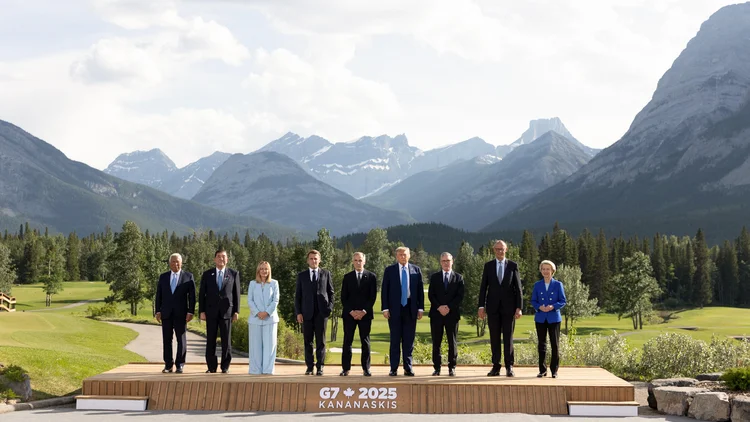G7-Gipfel
Summit in Canada shows cracks in Western alliance

Does the G7 Summit Still Have a Strong Voice of Unity?
Solidarity with Israel in the Fight against Iran
The G7 leaders in Canada declared that Iran was a “source of regional instability and terrorism,” and that Israel had the right to self-defense. A clear stance. While these declarations were negotiated in Canada, the U.S. position in Washington appeared to be shifting—toward greater U.S. involvement in the fight against Iran. However, direct military intervention would contradict Trump’s campaign pledge to keep the U.S. out of future wars. The Israel-Iran conflict was also the stated reason for Trump’s early departure—allowing him to avoid discussion of his Ukraine stance in the presence of President Zelenskyy. His attempts to end the war in Ukraine through bilateral negotiations had completely failed—evidently, reason enough to avoid the subject altogether.
No Unified G7 Message against Putin
This has left the G7 without a unified strategy or pressure campaign against Putin. Worse still, Trump told reporters he believed it had been a mistake to expel Russia from what was then the G8 in 2014 in response to the annexation of Crimea. In doing so, he repeated similar statements he made at the G7 summit in 2018. Extending an invitation to Putin to return to the international stage—while Putin is actively waging a war of aggression against Ukraine—once again illustrates Trump’s inability to distinguish friend from foe. It also reveals his disdain for multilateral forums like the G7. The self-proclaimed dealmaker prefers bilateral negotiations and does not want to be one among many at international summits like the G7.
Has the G7 Idea Come to an End after 50 years?
The possible inclusion of Russia—or even China—would make future unity on key issues almost impossible. G7 would lose its identity as a guardian of a democratic and rules-based international order. However, a G7 without a committed U.S. at the helm also loses significance and impact. The Canadian G7 summit sends mixed signals. The assembled economic and military powers were united in their condemnation of Iran, but not when it came to Putin’s war of aggression. There will be another G7 summit in 2026, with France holding the presidency. It remains to be seen how President Macron will engage the U.S. president at that time.
